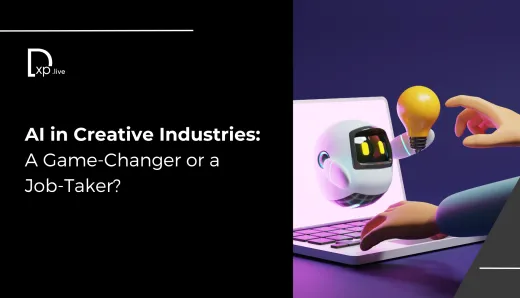Can AI-Powered Agents Replace Human Touch? The Balance of Automation and Empathy in Customer Interactions

In an era where technology is reshaping every facet of our lives, the advent of AI-powered agents has stirred up an intriguing debate: Can these sophisticated tools effectively replace the human touch in customer interactions? As we dive into this conversation, it's essential to understand the nuances of automation, especially in the context of companies leveraging Salesforce's Agent Force.
The Rise of AI-Powered Agents
Imagine this: you're shopping online, eyeing that perfect handbag, and you have a question about styling. Enter Sophie, an AI agent designed to assist you seamlessly. With the ability to access your purchase history and preferences, Sophie can provide personalized responses and direct you to in-store events. Sounds perfect, right?
Yet, this scenario highlights a critical point: while Sophie can handle inquiries with efficiency and accuracy, she lacks the emotional intelligence that comes naturally to human advisors. In the words of the Salesforce keynote, "Sophie cannot do styling. That’s not her job." This raises the pivotal question: at what point do we need to prioritize human interaction over algorithmic efficiency?
The Importance of Empathy in Customer Interactions
AI is rapidly growing, speeding up customers' experiences and giving them data-driven insights. Still, there are certain areas where human touch is inevitable-the areas that require empathy understanding, or emotional nuances. For example, take a healthcare setting where patients primarily want to be reassured and comforted. Human connection can play a significant role in a patient's experience, especially in the trials of new pharmaceuticals. As mentioned in the Salesforce presentation, agents need to keep checking on the trail participants to see how they are and make sure they stick by the protocols. That's not all about data; that's about love for humans.
Here lies the fine line. While AI can certainly handle all that information and perform routine tasks, it fails when stakes are high and emotional intelligence is what's needed-most, like a patient receiving treatment needs to be reminded to hydrate before an MRI scan. Will a message from an AI come close to matching the same level of concern as a human nurse checking in personally?Finding Harmony in Collaboration
The solution isn't as simple as choosing between AI and human touch; rather, it's about finding harmony between the two. Salesforce's integration of AI-powered agents into workflows shows how both can coexist to enhance customer experiences. AI can streamline processes, gather insights, and facilitate communication, while humans can step in when empathy is needed.
As we’ve seen with Saks Fifth Avenue's approach, the combination of agents and human advisors creates a robust customer experience. When Sophie passes styling questions to a human advisor, the transition is seamless. The advisor has access to all previous interactions, ensuring that the customer doesn’t need to repeat themselves—an example of technology enhancing, rather than replacing, human touch.
The Future of Customer Interaction
Looking ahead, the challenge lies in defining the roles of AI and humans in customer interactions. We must recognize that while AI can enhance efficiency, it shouldn't overshadow the human qualities that foster loyalty and trust. Customers still want to feel valued, heard, and understood—qualities that are often best conveyed through human interaction.
In a world increasingly dominated by AI, we must remember that technology serves a purpose, but the human element remains irreplaceable. As Salesforce's vision unfolds, it’s imperative to ask: how can we leverage AI without losing the warmth of human connection? The future of customer interactions hinges on our ability to blend the best of both worlds—making every interaction not just efficient, but genuinely enriching.
Embracing a Balanced Approach
The final conversation around AI and the human touch involves no competition but collaboration. If businesses start using AI-powered agents like Sophie as tools that complement human abilities instead of replacing them, then an efficient as well as an empathetic customer experience will resonate well. The pathway goes ahead in integrating these technologies with a deep understanding of human needs—a challenge that has, if met, for generations to redefine customer service.




